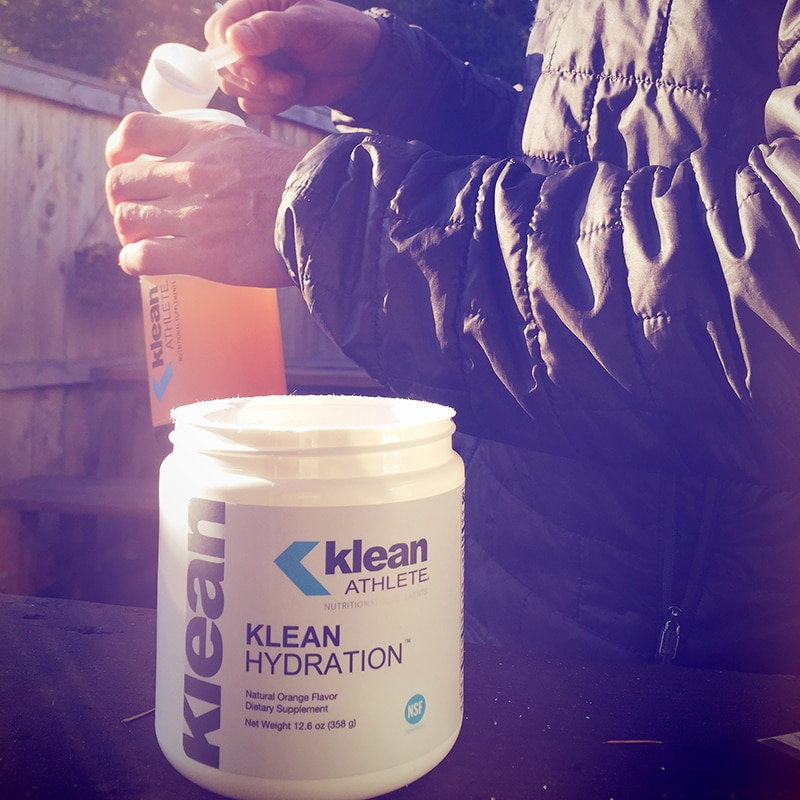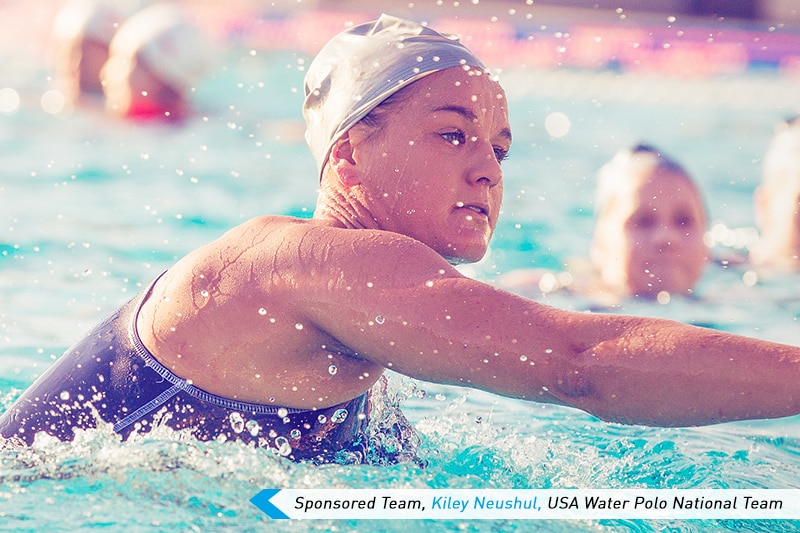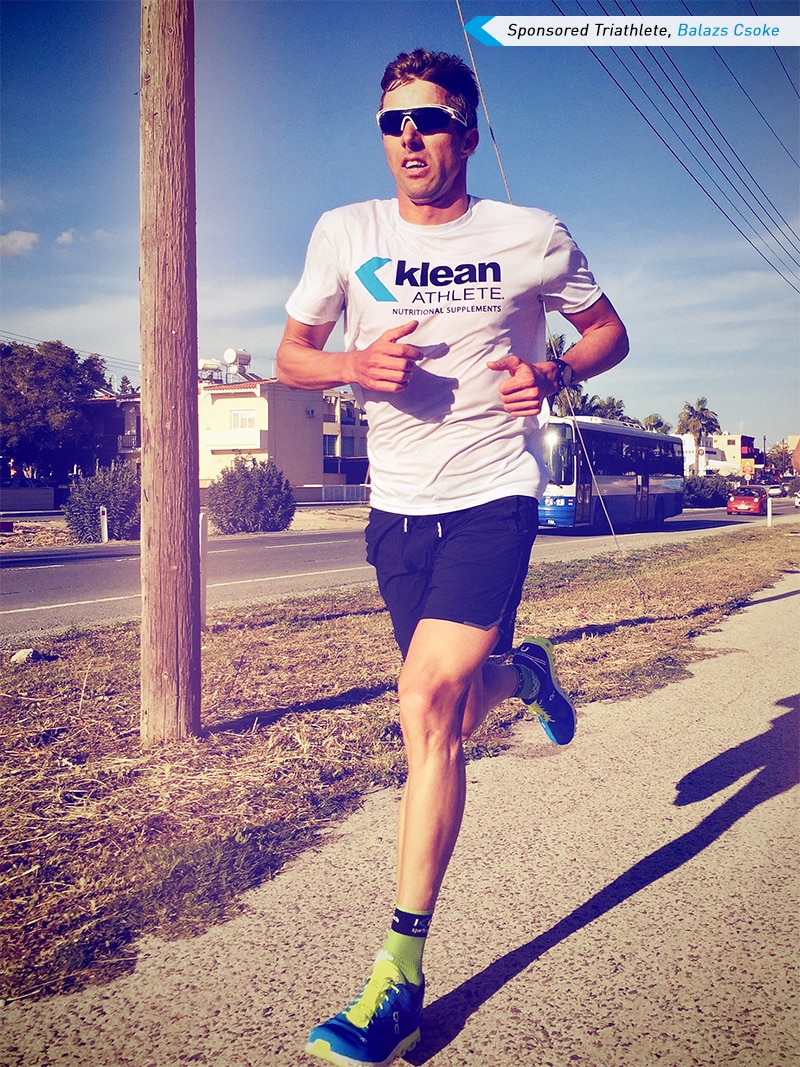How To: Hydration
Meet our newest product addition, Klean Hydration™ and learn the fundamentals of how to use one of an athlete’s most commonly used nutritional products.
by Kelly C. Heim, Ph.D. (biography click here)
You’ve heard it many times before: Adequate fluid intake is critical for athletic performance and recovery. But like most athletes, you probably wonder whether your current hydration strategy is optimal. After all, your sense of thirst will not tell you unless you’re already dehydrated, and it’s hard to detect the signs of the initial fluid deficit.
If any of the following apply to you, you might want to take a closer look at your hydration strategy:
- You train at high intensity and/or long durations increasing sweat rate and total volume lost, respectively.
- You work out indoors, or in warm and/or humid environments. In these conditions, heat cannot be dissipated easily due to lower evaporation of sweat from the skin.
- You train in cold environments. Cold air promotes respiratory fluid losses, and sweat rates are often high due to multiple layers of clothing and equipment.
- You are heavier than the average person. Generally, heavier athletes are more prone to dehydration.
- You live and/or are training at altitude. Above 8,200 feet, urine output increases. You also lose more water simply by breathing (respiratory water loss).

How much fluid do you need?
Athletes often lose between 0.5 and 2 liters per hour in warm climates, and higher sweat rates are not uncommon. Since dehydration risk is multifactorial and highly variable, protocols need to be tailored to the individual. A good way to estimate your fluid requirement is to weigh yourself immediately before and after a typical training session in a representative climate, and repeat this on three different days to get an average. For every pound lost, you will need to consume approximately 1 pint of extra fluids. Even if you lose as little as 1% of your body weight, you are within the range of potentially diminished physical performance. A 2-3% loss defines dehydration and should be avoided at all costs.

Does water suffice?
Water is an essential nutrient, and it should be a staple in the athlete’s diet. It will suffice for shorter durations of under one hour in temperate climates, provided that you consume enough of it. Some athletes can do well with just water, but when you are sweating for longer than an hour, day in and day out, it is far from ideal.
Water has several disadvantages. You run the risk of hyponatremia (low blood sodium) if you consume high volumes over a long period. Secondly, it may sit in your stomach for a slightly longer period than a drink containing solutes, like sodium and carbohydrates. Finally, relying on water alone can diminish your desire to drink in the late stages of an event. For these reasons, many athletes opt for a hydration beverage.
What makes a good hydration beverage?
First, it should taste great, since you may be drinking significant amounts. Secondly, efficacy and tolerability are key. How fast it’s absorbed and how well you remain hydrated depend on the following variables:
- Sodium in a sports drink serves three purposes:
- it replaces sodium lost in sweat;
- it sustains the thirst mechanism in your hypothalamus, encouraging you to drink more; and
- it mildly reduces urine output, keeping the fluid you consume in your bloodstream for a longer period. Research indicates that hydration solutions intended for the average user should ideally consist of 20-50 mmol/L sodium (120-170 mg/8 fl oz).
- Other minerals such as potassium, magnesium and calcium should be in your hydration product, but large amounts are not necessary. They are lost in sweat, but they do not serve functional rehydration roles as notably as sodium does.
- Carbohydrates are equally instrumental, and not merely because they are a source of energy. When part of a hydration solution, they support the absorption of fluid through the intestinal wall, so that it gets to where it needs to go—your bloodstream—much faster. Sugars also naturally enhance the taste of the beverage, encouraging you to drink more on a continuous basis. A 6% carbohydrate solution is supported by ample research on athletes in a variety of sports and in demanding environments.

Absorption and tolerability: Formulation principles that you won’t see on a label
Optimal absorption of fluids occurs when a beverage’s osmotic concentration, or osmolarity, is similar to your body’s own fluids. Excessive sodium, potassium and sugars will drive this value higher, impeding fluid absorption and increasing the risk of digestive distress. A drink with a low osmolarity similar to body fluids (around 270-295 mOsm/l) is typically absorbed faster and is often better tolerated.
Sodium and potassium chlorides increase osmolarity more significantly than citrates. Sugars typically have a negative impact above 4%. However, certain complex carbohydrates have no effect on osmolarity. Cluster Dextrin® has a lower molecular weight than typical long-chain starch molecules and contributes to the unique carbohydrate composition and low osmolarity of Klean Hydration™.‡
Klean Hydration™ provides 6% carbohydrates, 180 mg sodium and 70 mg potassium (as citrates) per 8 fl oz, along with chelated magnesium and calcium. This great-tasting beverage, now available as a powdered mix (tub or packets), is ideal for pre-workout hydration, as well as electrolyte and fluid replenishment during and after exercise.‡
Klean Hydration™ also brings you the peace of mind that you expect from Klean Athlete, as every product undergoes rigorous testing by the NSF Certified for Sport® program to certify that sports supplements are safe and free from banned substances. Formulated based on well-established beverage formulation principles and scientific research, Klean Hydration™ is a reliable, versatile solution for any athlete or active individual to support optimal hydration for performance and recovery.‡

Kelly C. Heim, Ph.D., is a nutritional pharmacologist and Senior Director of Scientific Affairs for Atrium Innovations’ heath care practitioner brands, for which he oversees the scientific integrity and safety of products by maintaining rigorous standards of research evaluation and its application to product formulation. Dr. Heim has a doctorate in pharmacology from Dartmouth Medical School and a Bachelor of Science in Nutritional Biochemistry from the University of New Hampshire. His academic research, invited reviews and book chapters have traversed critical topics in nutrition and pharmacology. He has lectured and written extensively for practitioner audiences on nutritional genomics, bioavailability, and safe and effective condition-specific use of dietary supplements. As a bantamweight bodybuilder, physique competitor and martial artist, he has dedicated many years to applying evidence-based nutrition to enhance performance, and he competes exclusively in drug-tested events.
REFERENCES
- Bergeron MF. J Sci Med Sport. 2003;6:19–27.
- Palmer MS, Spriet L. Appl Phys Nutr Metab. 2008;33:267–71.
- Kenney W. Gatorade Sports Sci Exch. 2004;17:1–6.
- Sawka MN, Burke LM, Eichner ER, et al. Med Sci Sports Exercise 2007;39:377–90.
- Armstrong LE, Casa DJ, Millard-Stafford M, et al. Med Sci Sports Exerc. 2007;39:556–72.
- Castellani JW, Young AJ, Ducharme MB, et al. Med Sci Sports Exerc. 2006;38:2012–29.
- Oliver JM, Almada AL, Van Eck LE, et al. (2016). PLoS ONE 11(9): e0163009.
Topics
